By Emily Kemme
There’s a socially distanced line at the front door of Vindeket Foods leading all the way down the sidewalk to the street. The line is expected. It’s Sunday, a few minutes past noon. From twelve until three each week, the pace will be steady. For the most part, the scene repeats on Tuesdays from 2-7 p.m. After shoppers enter the market, a Vindeket volunteer greets each one and asks how many mouths they are feeding today. That number is added into the daily count. There is no charge for the food.
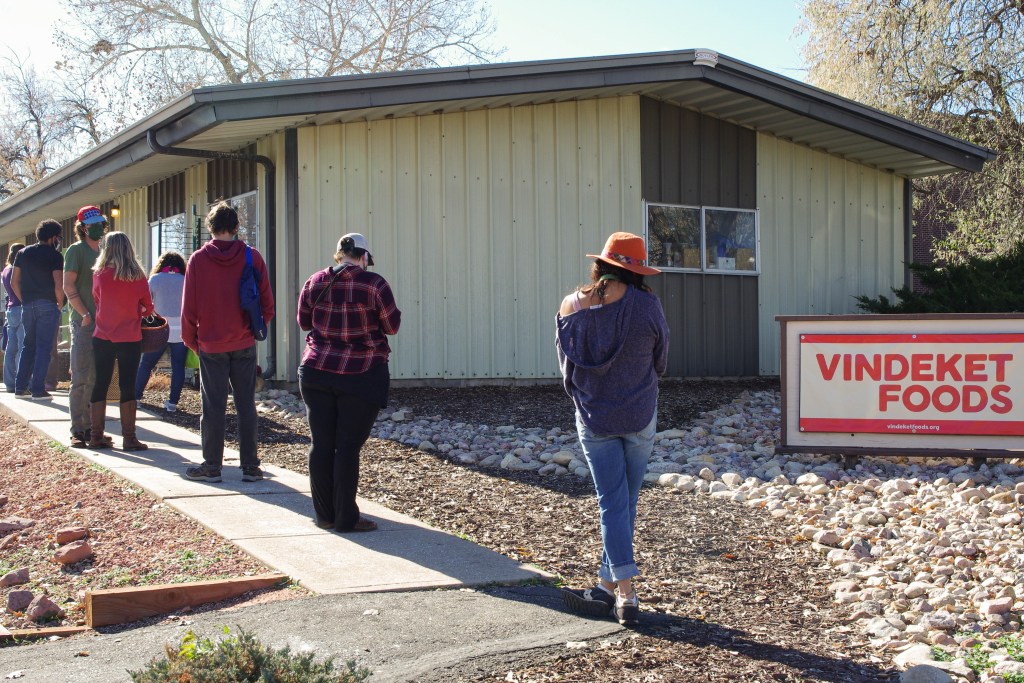
Sunday on average will be 350 mouths, with likely 150 shoppers, estimates Nathan Shaw, the visionary behind the food rescue non-profit.
Partnering with local grocery stores, Vindeket volunteers source food destined for the landfill. The non-profit recently hit a milestone, rescuing 1 million pounds of food since opening in June 2017.
“We are community supported and 80% of our operating budget comes in the form of individual donations. It really takes all of us for Vindeket to be successful,” Shaw said.
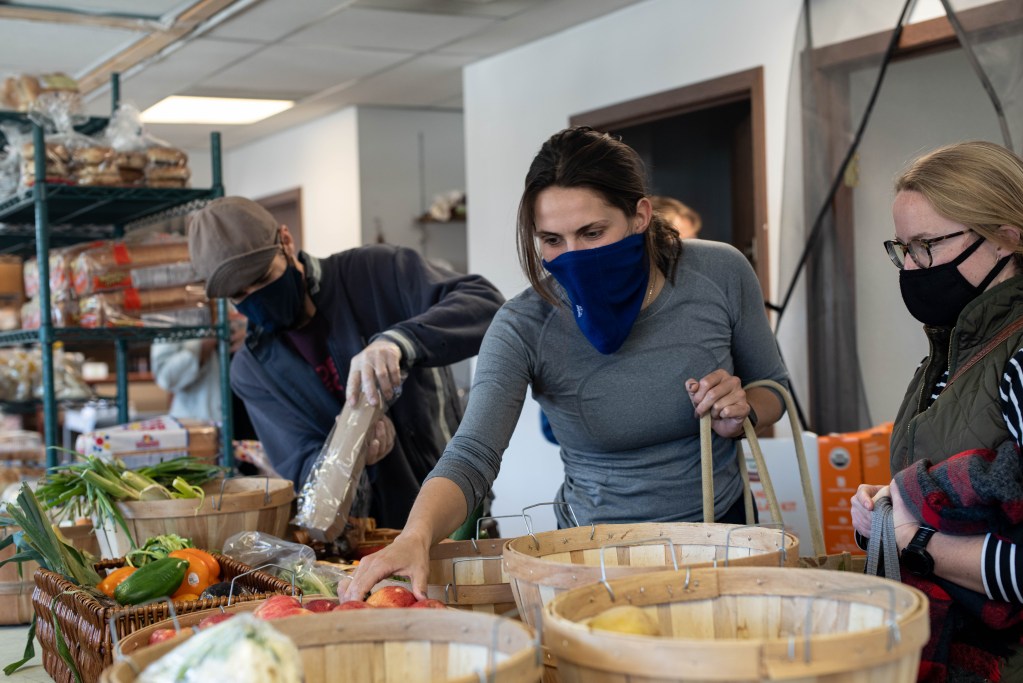
According to the USDA, food waste in the United States is estimated to be 40%, translating to 133 billion pounds of foodstuffs worth $161 billion dollars. Tangential factors — land, water, labor, and energy resources to produce, process, transport, prepare, and store food — are all adversely impacted.
As a former geologist turned environmentalist, Shaw sees the non-profit as a way to create balance and right negative impacts in a wide range of sectors, including hunger and poverty, water scarcity, effects on climate, fossil fuel consumption, and more.
The name of the no-cost non-profit speaks to that directly. Vindeket — a portmanteau of advocate and vindicate — seeks to make a wrong right, Shaw said.
Shaw admits that he was inspired by dumpster diving. The concept of assuring that no food falls through the cracks came to him naturally. According to the Vindeket website, Shaw found he could eat like a king on what others threw away.
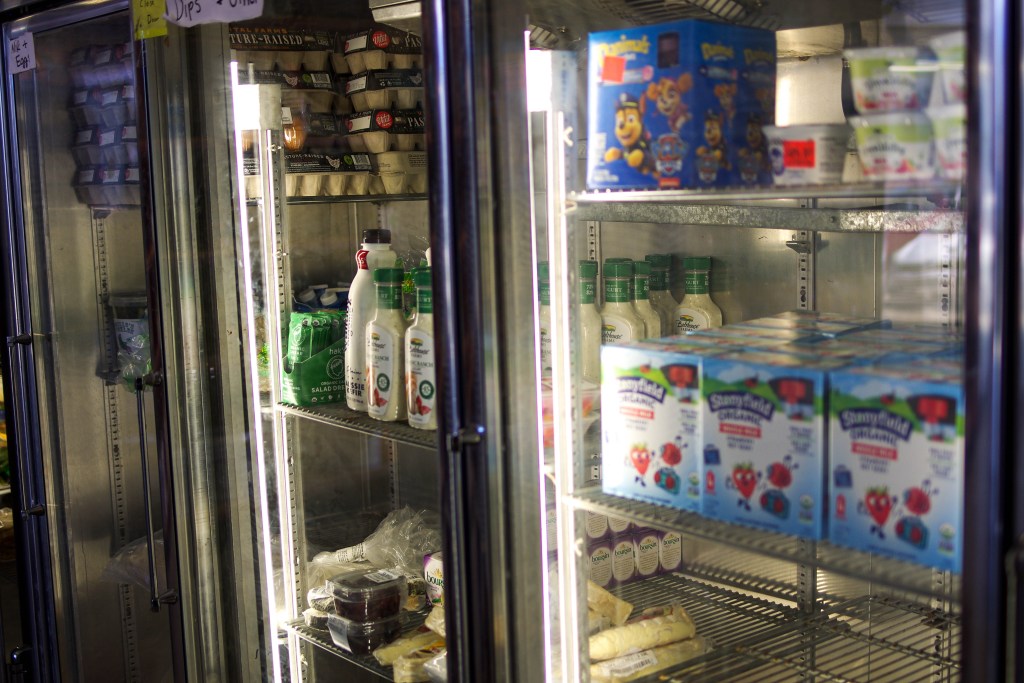
Case in point: at a recent community dinner at Tap and Handle in Old Town, Fort Collins, area chefs Daniel Gray (The Gold Leaf Collective), Dana DeMarco (The Cooking Studio), Chris Conrey (The Regional), and caterer Eric Young each took a course. The chefs got creative with rescued food provided by Vindeket, along with wild game from Colorado Youth Outdoors and produce from Folks Farm & Seed. Dinner for 40 included deep fried polenta, local endive salad, venison chorizo tacos, and antelope stuffed peppers. The snowy end-of-October event was taken in stride by organizers who had to move it indoors, but wrapped it up by serving a perfectly cozy walnut halva cake with butternut squash and white chocolate for dessert. The community dinner had a value of $60 a meal, but Shaw said it was a “pay-what-you-can” sort of event.
Shaw stresses that Vindeket is a grassroots organization.
“Patrons have the opportunity to volunteer or make a donation to give back. It’s a cool, beautiful cycle where we all educate our community on food waste and create a caring conscience of where the food goes.”
Nathan Shaw
Vindeket Foods welcomes all ages, from families to college students, foodies to environmentally conscious consumers. The goal is individual empowerment through the practice of enjoying sustainable food.
Shaw’s philosophy on food waste goes deep. He believes we as a society have been trained to have a lot. “Whether you call it ‘plenty’ or ‘bounty,’ there’s some anthropological and historical reasons that we have this idea that what we buy should be perfect. We are being separated emotionally from identifying with the land,” he said.
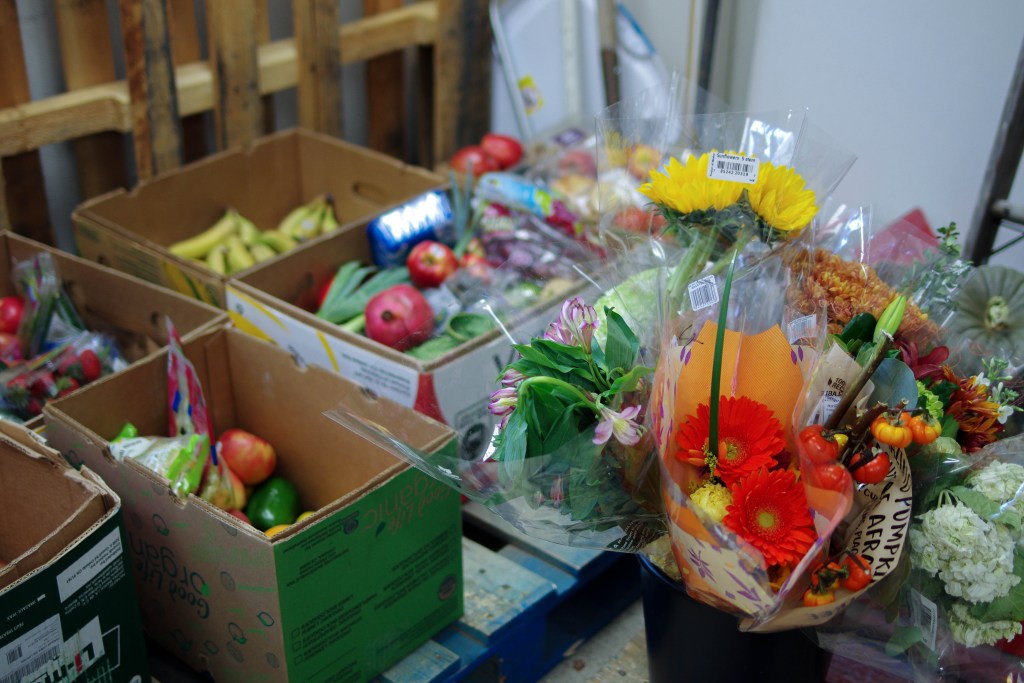
There’s also a societal obsession with perfectionism, in that, “What we eat needs to be the best, we can’t eat an apple with a blemish or cheese with a speck of mould. Marketing follows through on those beliefs, showing us how we want the grocery experience to be the best. It’s a deep ingrained thing, trying to teach that you are worth it, the harvesting, the land, the water, the diesel fuel is worth it, it’s okay.”
The reality, Shaw says, is that most apples grown aren’t perfect, with B grade apples typically used for juice. Only a fraction of apple production makes its way to market.
“There is time, effort, money, and resources lost to what goes on the shelves. And then it goes bad in the fridge because you forgot about it.”
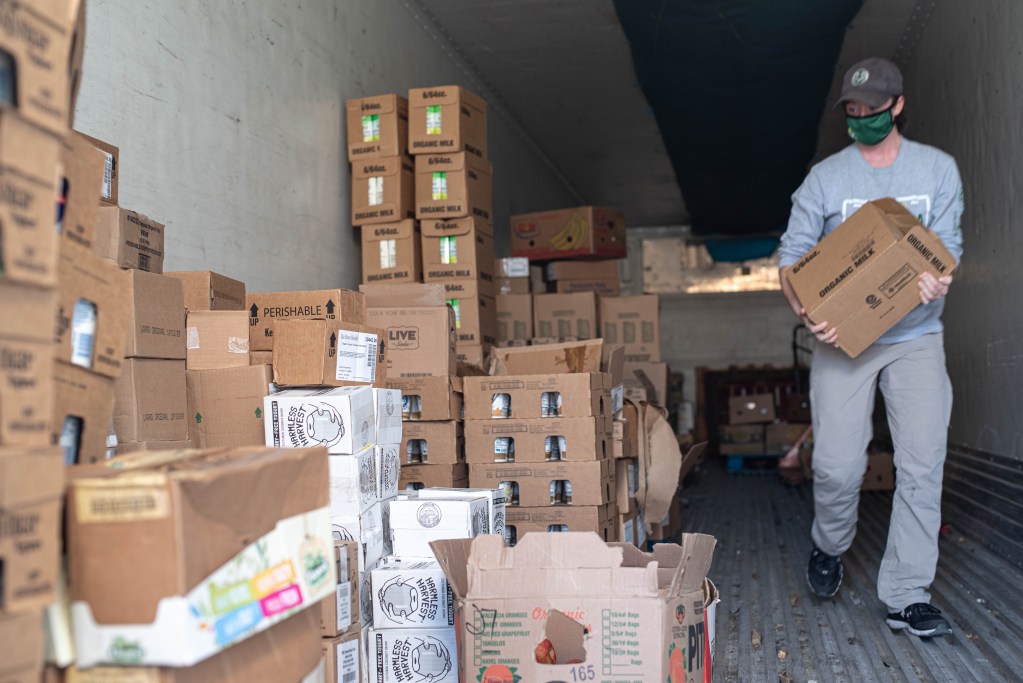
As an environmentalist, Shaw also worries about the decomposition side, including landfills that don’t properly decompose, releasing greenhouse gases into the atmosphere. According to Shaw, the largest component of landfills is rotting food.
Part of the problem is we are a packaged food society. “We need to learn how to cook again, the historical practices, like milling grain and preserving our own foods.”
He’s not pushing for people to be hippies, but instead counsels more do-it-yourself food prep. For example, Shaw counsels people to get creative with that bunch of cilantro once they’ve pulled out a few sprigs for tacos. “The rest of the bunch goes great in Asian food,” he notes.
And cutting off a bruised part on an apple is okay. It will still taste like a juicy apple.
To Shop:
1317 Webster Avenue, Fort Collins
Open:
Sundays 12-3 pm
Tuesdays 2-7 pm
To Volunteer or Donate:
Visit Vindeket Foods website or follow them on Facebook


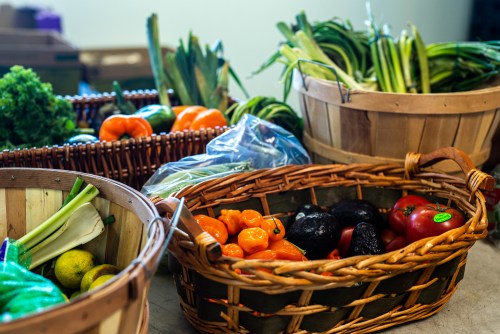
Emily- lovely pictures, words, and thoughts. Thank you for writing and sharing about Vindeket so well!!
Thank you! I enjoyed learning about this worthwhile organization in the process.